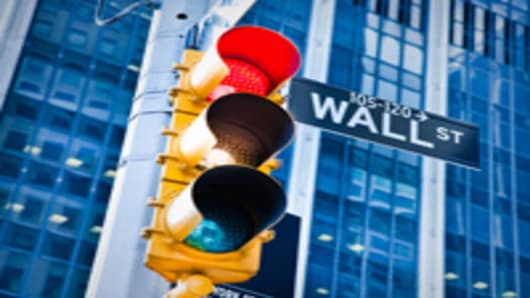Oh boy. Imagine this: you are a stock exchange. You are going public. You want the world to know that you are tough competition for the NYSE and Nasdaq. You want the world to know you are fast and efficient. You are modern. They are old. You are hip and sleek. They are fat and bloated.
It is your first day of trading. You are listing the stock on your own exchange. Not only that: you are the first stock that is listing on your exchange (there are only a few ETFs that have listed otherwise).
And the moment of truth comes. And the first trade is: way below the initial price!
And then: DISASTER! There is essentially ONLY ONE TRADE! AND THE STOCK IS HALTED! The system crashes!
More specifically: they did the auction, priced it, and began trading at $15.25, but that single trade was the only one that happened at that price — then a number of penny executions happened at BATS and Nasdaq.
Pennies! These were quickly cancelled, but regardless: how did the stock suddenly start trading in pennies?
There was clearly a technical problem. It's not possible that there were no bids at anything higher than a few pennies. It may be a cheap stock, but it's not that cheap, folks. The system was not displaying, or not executing, bids and offers properly, it seems.
There was a second issue: there were problems with BATS trading in stocks with stock symbols that began with "A" and "B" (including Apple, which was briefly halted on an erroneous trade shortly after BATS opened). It is quite possible that BATS placed trading on its own stock on the same servers that it used to trade the "A" and "B" stocks and that orders overwhelmed that server.
Regardless: we are waiting for clarification from BATS. Trading in the stock is halted until further notice.
By the way, imagine how the BATS backers feel. Because BATS is not getting any money, it's all going to their backers. Who are they? Why, it's all the Wall Street firms: Morgan Stanley, Barclays, Deutsche Bank, Merrill, etc.
Don't blame BATS. Blame the SEC.
Finally, no one anywhere should gloat too much about this debacle. This is the end result of a fragmented market system.
More than a dozen years ago, the SEC, in its wisdom, declared war on the trading monopolies that NYSE and Nasdaq had. No more SOES bandits, they said. No more specialists who (supposedly) could take advantage of their trading positions. No more leaky sell-side. We are going to encourage competition and allow other exchanges to be created, the SEC said.
So now we have BATS, and Direct Edge, and others. Orders are supposed to be executed with an eye to best price and speed, but with so many different places to execute orders the system is prone to errors and crashes.
And more, the SEC said: we are going to trade in pennies. No more trading in sixteenths. And so it was: and the profitability of trading went out the window. Wall Street fired sell-side traders by the thousands. The NYSE floor shrank dramatically.
There was — and is — almost no money to be made trading stocks the old fashioned way.
Enter high-speed trading, which was enabled by: the move to trading in pennies, competition from exchanges that offered rebates to trade on their exchange, and technological advances in hardware and software that made it possible to trade in milliseconds.
Should we get nostalgic for the old days? Not really. I was there, and it was indeed leaky.
But this new world has its own, very different, problems. We don't need a dozen or more exchanges. We need to have ALL orders exposed to bids and offers by everyone, not hidden in dark pools. And exchanges — all of them — should not have to pay to get people to trade on their exchanges.
How's that for a start? I'll get off my soap box now.
_____________________________
Bookmark CNBC Data Pages:
_____________________________
Want updates whenever a Trader Talk blog is filed? Follow me on Twitter: twitter.com/BobPisani.
Questions? Comments? tradertalk@cnbc.com



